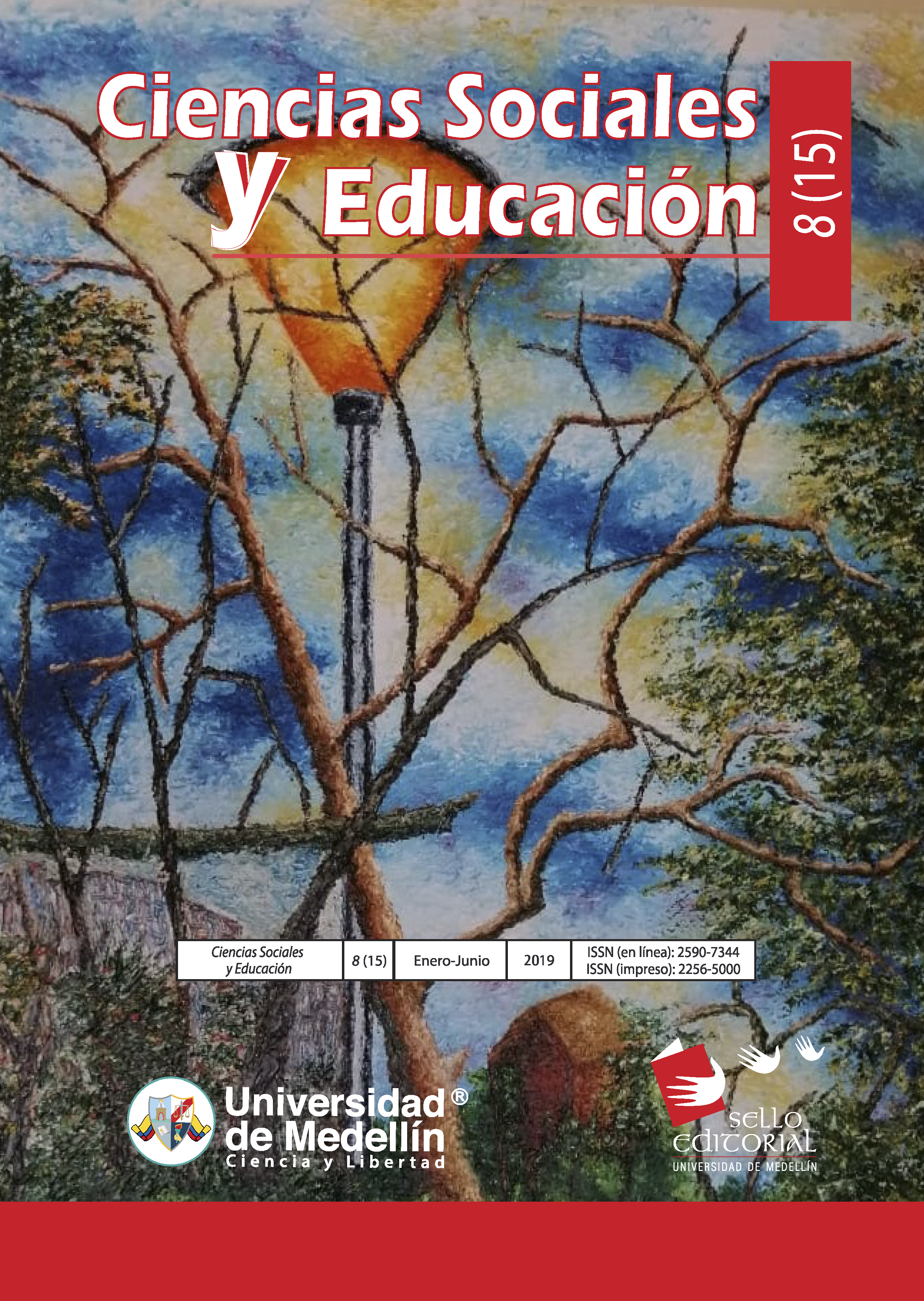Consumption as an Scenery for the ‘Forging of the Self’ in the Body and Health Categories: a Perspective from the Humanistic Existential Psychology
Main Article Content
Abstract
This article raises a theoretical reflection upon the existential values in consumption as a social phenomenon. The existential-humanistic psychology was defined as a theoretical framework and the analysis was delimited towards the body and health, interesting categories for psychology, market, and advertisement. Qualitative research was used with a bibliographic review of hermeneutic kind. These categories allowed the use of notions such as 'care of the self' and "forging of the self', which are necessary for the orientation of men if he or she chooses to, towards a good life'. It was found as a binding theme line the limit as inherent to freedom and responsibility. The study finally allowed to comprehend that the 'forging of the self' and 'the care of the self' are framed under this exercise of limit, freedom, and responsibility. Even if within categories such as body and health men and women can dispose of practices for the 'care of the self', these are crossed by market dynamics orientating for a idealized, medicalized 'body' and 'health' and functional towards work and productivity, as well as hedonic pleasure experiences that enslaves him or her and not necessarily points towards a 'forge of the self'.
Article Details
References
Chul-Han, B. (2014a). El enjambre. Barcelona, España: Herder.
Chul-Han, B. (2014b). Psicopolítica. Barcelona, España: Herder.
Congreso de la República de Colombia (2011). Estatuto del consumidor. Ley 1480 de 2011. Bogotá: Congreso de la República de Colombia.
Cortina, A. (2002). Por una ética del consumo. Madrid: Tauros.
De Castro, A. M. y García M. (2011). Psicología clínica. Fundamentos existenciales. Barranquilla, Colombia: Universidad del Norte.
Estrada-Mesa, D. A. (2015). La medicina antigua: Una ética existencial en Michel Foucault. Praxis Filosófica, (42), 134-156.
Fajardo, J. A. (2009). Yoga, cuerpo e imagen: espiritualidad y bienestar, de la terapia a la publicidad. Universitas Humanísitca, (68), 11-47.
Franca-Tarragó, O. (2008). Ética para psicólogos: introducción a la psicoética. Bilbao: Desclée de Brouwer.
Latner, J. (1994). Fundamentos de la Gestalt. Santiago de Chile, Chile: Cuatro Vientos.
Lipovetsky, G. (2016). De la ligereza. Barcelona, España: Anagrama.
López, H. J. (2001). Investigación Cualitativa y participativa: Un enfoque hermenéutico y Critico Social en Psicología y Educación Ambiental. Medellín, Colombia: Universidad Pontificia Bolivariana.
Martínez M. M. (1982). La psicología humanista: fundamentación epistemológica, estructura y método. México: Trillas.
Martínez, Y. A. (2009). Filosofía existencial para terapeutas y uno que otro curioso. México: LAG Ediciones.
Molina, J. y Morán A. (2008). Que viva la publicidad viva. Bogotá, Colombia: Lemoine Editores.
Ortiz-Pabón, N. y Sanabria-Correa, L. F. (2015). La relación entre cuerpo y salud como forma de ser-enel-mundo: una mirada desde la psicología humanista existencial (tesis de pregrado) Universidad
Pontificia Bolivariana, Medellín, Colombia.
Papalini, V. (2017). El buen vivir, entre las tácticas del consumo y las cosmogonías ancestrales. Chasqui. Revista Latinoamericana de Comunicación, (134), 43-59.
Quitmann, H. (2006). Psicología humanística. Bogotá, Colombia: Herder.
Savater, F. (2004). Ética para Amador. Barcelona, España: Ariel.
Schiffman, G. y Kanuk, L. (2010). Comportamiento del consumidor. México: Pearson.
Solomon, M. R. (2013). Comportamiento del consumidor. México: Pearson.
Universidad Pontificia Bolivariana (2017). El nuevo mundo del lujo. Conferencia dictada en el marco de la estrategia 'En Contexto'. Escuela de Verano UPB. Medellín, 15 de agosto.
Vargas, N. (2014). Zygmunt Bauman: La modernidad líquida como una crítica a la sociedad. Medellín, Colombia: Universidad Pontificia Bolivariana.
Villegas, B. (1986). La psicología humanista: historia, concepto y método. Barcelona, España: Facultad de Psicología Universidad de Barcelona.





